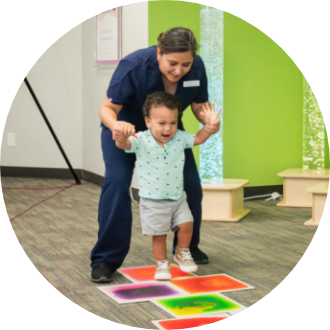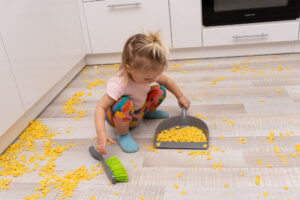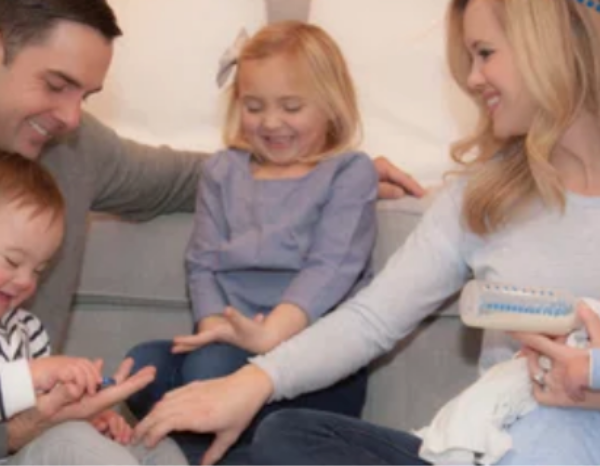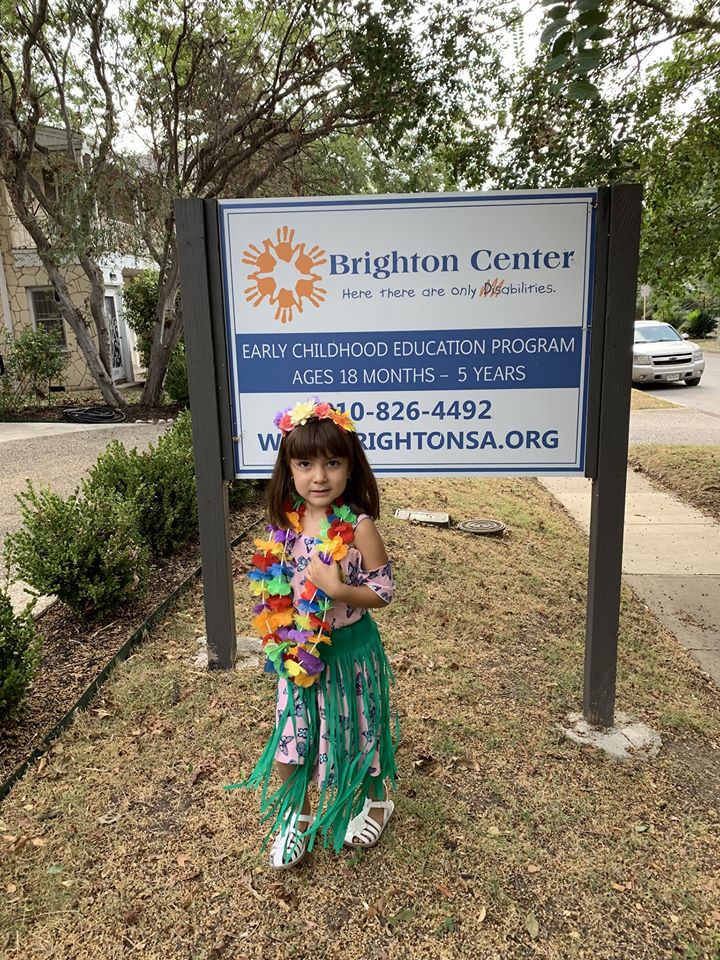The long-term goal of parenting is raising children to become competent, independent adults capable of performing practical, everyday skills. Adaptive development is the technical term that refers to acquiring these skills. Unlike academic skills or physical milestones, adaptive skills focus on the practical aspects of daily living.
Key Adaptive Development Skills
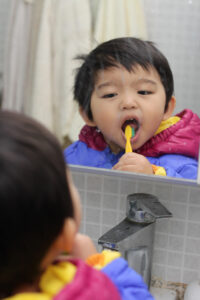 While adaptive development encompasses a range of abilities, let’s focus on four critical areas that are particularly important for young children:
While adaptive development encompasses a range of abilities, let’s focus on four critical areas that are particularly important for young children:
Self-care: These include fundamental skills like brushing teeth, washing hands, bathing, dressing, feeding oneself, and toileting.
Self-direction: Self-direction involves a child’s ability to make simple choices, follow routines, complete tasks independently, and manage time in an age-appropriate manner.
Home/school living: These skills relate to a child’s ability to contribute to and navigate their immediate environment. For example, they help with simple chores, organize their belongings, adapt to new environments, and follow classroom rules.
Health and safety: These skills include understanding basic safety rules like looking both ways before crossing a street, recognizing dangerous situations, seeking help when needed, and understanding basic health practices like covering their mouth when coughing.
How Parents Can Help Children Gain Adaptive Skills
Here are some strategies to help your child acquire these essential adaptive skills. Pro tip: When necessary, allow more time to get out the door as your child is learning these skills. Click here to see a list of activities you can do at home to practice adaptive skills.
- Create a supportive environment. Set up your home in a way that allows your child to practice independence by:
- Using child-sized furniture
- Placing frequently used items within reach
- Creating designated spaces for your child’s belongings
- Encourage independence. While it might be faster to do things for your child, allowing them to try tasks independently is critical for their development. Encourage them to:
- Dress themselves
- Pour their own drink (and wipe up any messes!)
- Help with simple meal preparation
- Provide opportunities for practice. Look for opportunities to let your child practice adaptive skills:
- Let them help sort the laundry
- Involve them in grocery shopping by including them in making decisions
- Allow them to pack their own backpack for school
- Break tasks into manageable steps. Complex tasks can be overwhelming. Break them down into smaller, achievable steps. For example, getting dressed might be broken down into:
- Choose clothes
- Put on underwear
- Put on shirt
- Put on pants
- Put on socks
- Incorporate adaptive skills into daily routines. Make adaptive skills a natural part of your daily life. For example:
- Have your child set the table before meals
- Encourage them to tidy up toys before bedtime
- Involve them in pet care routines
- Use positive reinforcement. Praise your child’s efforts, not just their successes. This encourages them to keep trying, even when tasks are challenging.
Age-Appropriate Milestones and Expectations
While every child develops at their own pace, here are some general guidelines for adaptive skills at different ages. Between the ages of 1-3 years, children should be able to feed themselves with utensils, help with dressing (e.g., pushing arms through sleeves), start toilet training, and follow simple instructions.
Children ages 3-5 years old should be able to dress and undress with minimal assistance, use the toilet independently, help with simple chores, and begin to understand basic safety rules. Young elementary children, ages 5 – 8 years old, should be able to maintain personal hygiene (brushing teeth, washing hands) independently, choose appropriate clothing for weather conditions, follow established routines with minimal prompting, and understand and follow safety rules.
Remember, these are general guidelines. Some children may achieve these milestones earlier or later, and that’s okay. The key is consistent progress over time.
When to Consult with an Occupational Therapist
If you notice your child struggling with age-appropriate self-care tasks, you may consider having your child evaluated by an occupational therapist (OT). At Brighton Center, our OTs recommend having your child evaluated for additional support when you notice these signs:
- Your child consistently struggles with age-appropriate self-care tasks
- They have difficulty following routines or transitioning between activities
- You notice a regression in previously acquired skills
- Your child shows extreme frustration or avoidance when faced with daily living tasks
- There’s a significant gap between your child’s adaptive skills and those of their peers
Should OT be recommended, our OTs can:
- Develop strategies tailored to your child’s specific needs
- Provide activities to practice and reinforce skills
- Suggest modifications to your home environment to support independence
- Offer guidance on how to incorporate skill-building into daily routines
Remember, seeking help early can make a significant difference in your child’s development. If you have concerns, don’t hesitate to speak with your pediatrician or an occupational therapist.
Adaptive development is crucial to your child’s growth, encompassing the practical skills needed for daily living and independence. Remember that every child develops at their own pace, and what’s most important is consistent progress over time. By creating a supportive environment, encouraging independence, and providing plenty of opportunities for practice, you can help your child build these essential life skills.
 Click here to learn more about our pediatric therapy programs. If your child is struggling with motor skills, sensory processing, visual-perceptual skills, and other abilities that allow them to investigate and navigate their environment, contact us to schedule an evaluation.
Click here to learn more about our pediatric therapy programs. If your child is struggling with motor skills, sensory processing, visual-perceptual skills, and other abilities that allow them to investigate and navigate their environment, contact us to schedule an evaluation.
